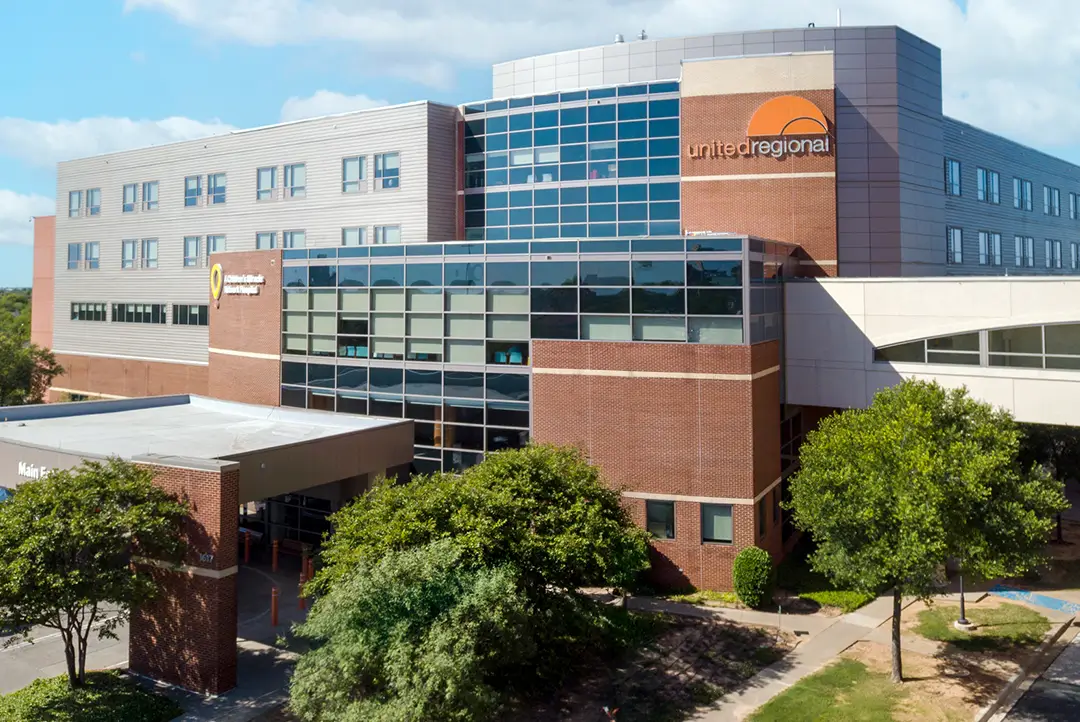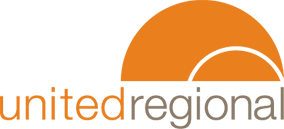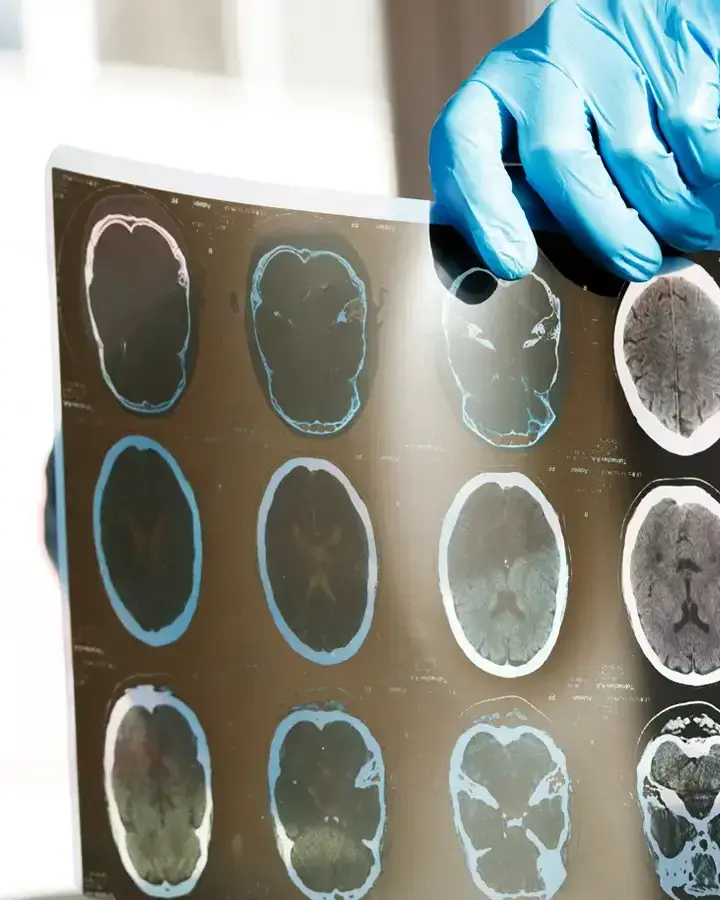Stroke Care
Stroke is one of the leading causes of death and adult disability in the United States. United Regional is dedicated to stroke symptom awareness — and to deliver fast, expert care when every second counts.
United Regional's Approach
While strokes can happen at any age, the majority occur in adults over age 65. Through public education and advanced clinical protocols, we work to reduce the time it takes to diagnose and treat stroke, helping patients achieve better outcomes and reduce the risk of long-term disability.

Joint Commission Primary Stroke Center Certification
United Regional is proud to have achieved the distinction as a Joint Commission Primary Stroke Center Certification. The Joint Commission’s Certificate of Distinction for Primary Stroke Centers recognizes centers that make exceptional efforts to foster better outcomes for stroke care. Achievement of certification signifies that the services we provide have the critical elements to achieve long-term success in improving outcomes. It is the best signal to our community that the quality care we provide is effectively managed to meet the unique and specialized needs of stroke patients. United Regional treats approximately 600 stroke patients annually and serves as the hub of the area’s Stroke Network
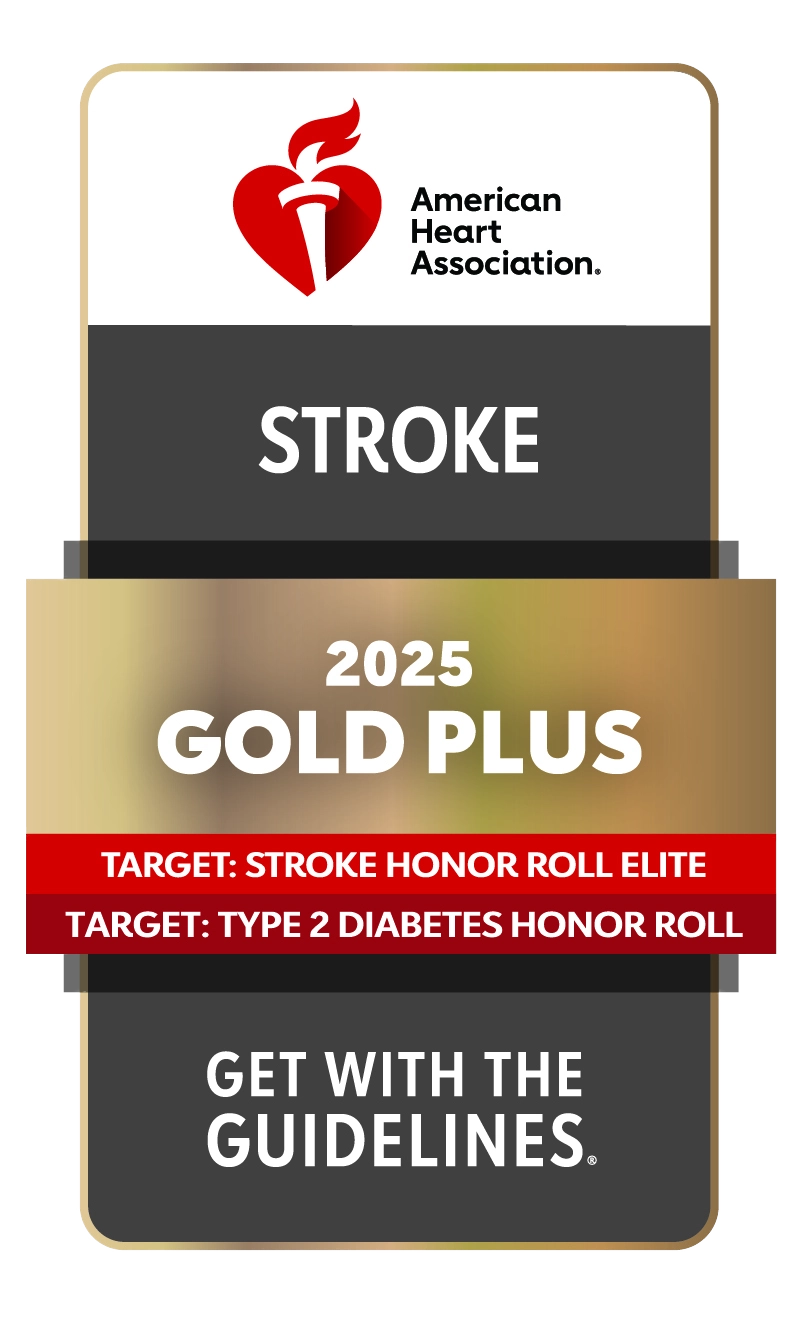
American Heart Association-Get With the Guidelines-Gold Plus
Since 2010, United Regional has been nationally recognized by the American Heart Association and American Stroke Association for excellence in stroke and cardiac care through the Get With The Guidelines® program — including the Stroke Gold Plus Award, Stroke Honor Roll Elite, and Type 2 Diabetes Honor Roll — demonstrating our commitment to evidence-based care and outstanding patient outcomes.
Know the Signs of a Stoke
Just like a heart attack, a stroke is a medical emergency that can lead to permanent disability — or even death — if not treated quickly. But with the right knowledge, lifestyle changes, and timely care, many strokes can be prevented or treated effectively.
F.A.S.T Warning Signs of Stroke
- F = Face Drooping – Does one side of the face droop or numb, if asked to smile, is the smile uneven?
- A = Arm Weakness – Is one arm becoming weak or numb? Ask the person to lift both arms and watch for one to drift downward.
- S = Speech Difficulty – Is speech slurred, or nonsensical?
- T = Time to Call 911 – Every minute counts during a stroke, Call 911 and note the time when symptoms first appear.
According to the American Stroke Association, when a stroke occurs, blood flow to part of the brain is interrupted. Without oxygen, brain cells begin to die within minutes. This can affect speech, movement, vision, and memory — sometimes permanently. That’s why it’s critical to recognize the signs and act F.A.S.T
Other notable symptoms of stroke are:
- Sudden confusion, or difficulty understanding
- Sudden loss of vision in one or both eyes
- Sudden numbness or weakness in the face, arm, or leg — especially on one side
- Sudden severe headache with no known cause
- Sudden trouble walking, dizziness, or loss of balance
Even if symptoms are brief or go away, don’t ignore them. Stroke treatment is most effective within the first 4.5 hours of symptom onset. Remember: Time is brain.
Know your risk factors for stroke.
Most strokes are preventable with the right knowledge and lifestyle choices. Understanding your personal risk factors is the first step toward prevention.
Common risk factors include:
- Alcohol consumption
- High blood pressure
- High cholesterol
- Illegal drug consumption
- Lack of exercise
- Poor diet
- Smoking
Certain medical conditions can also increase your risk, including:
- Blood disorders
- Coronary artery disease
- Diabetes
- Sleep disorders
By managing these risk factors through healthy habits and regular checkups, you can lower your chances of having a stroke. If you feel like you are having a stroke, call 911 to get emergency help.
Related Stroke Services and Technology
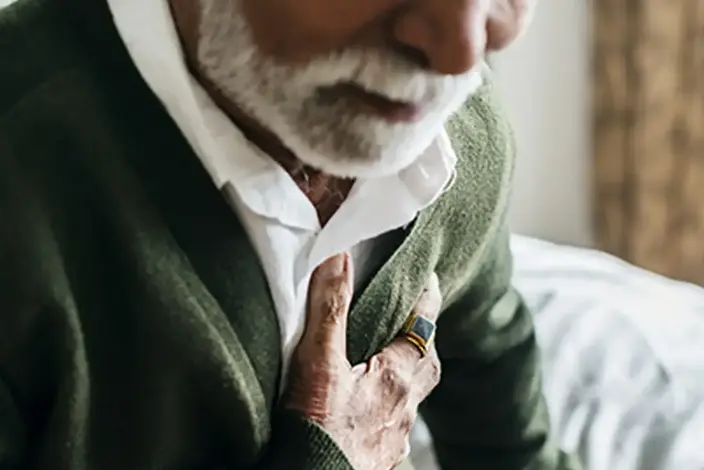
Cardiac Care
Trust United Regional Health Care System for your cardiac needs with leaders in heart and vascular care. Advanced diagnostics, skilled surgeons, and compassionate staff.
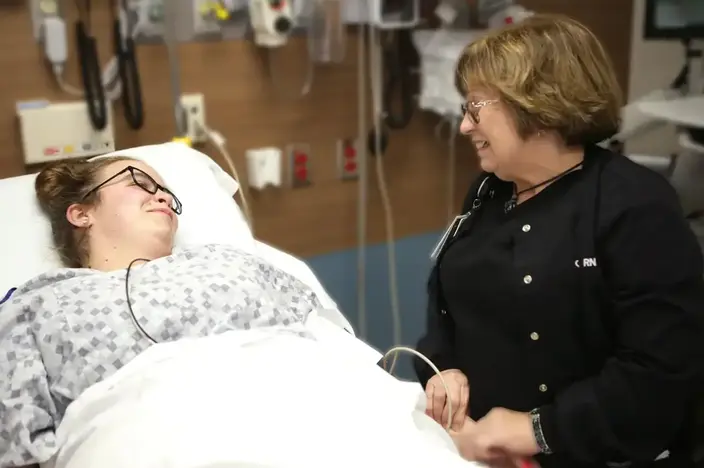
Emergency & Trauma
Our 24/7 emergency department provides urgent care for stroke, trauma, heart attack, and other life-threatening conditions. If you believe you are experiencing a medical emergency please dial 911.
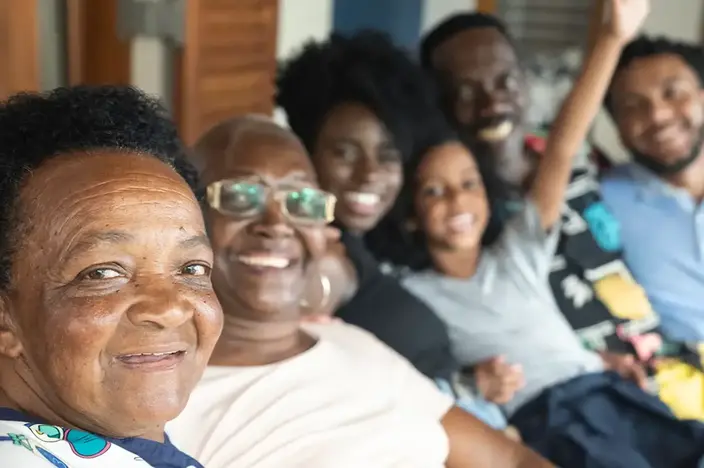
Primary Care
Primary care is whole-person care that supports your physical, mental, and emotional health through prevention, diagnosis, treatment, and long-term wellness. Take your first step to long-term health.
